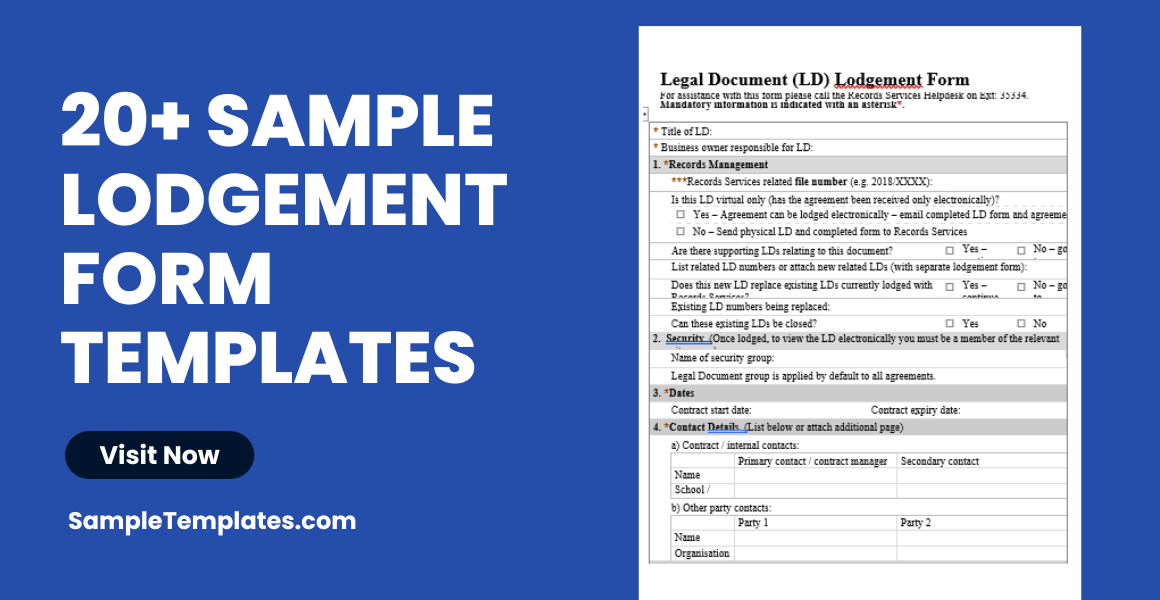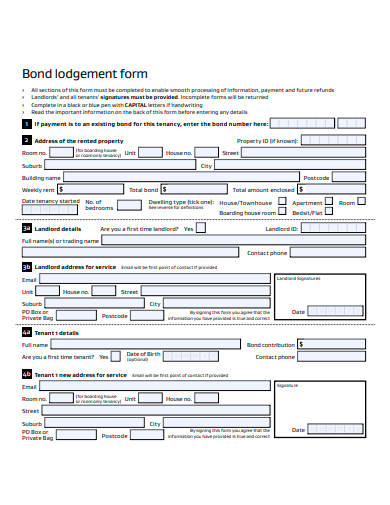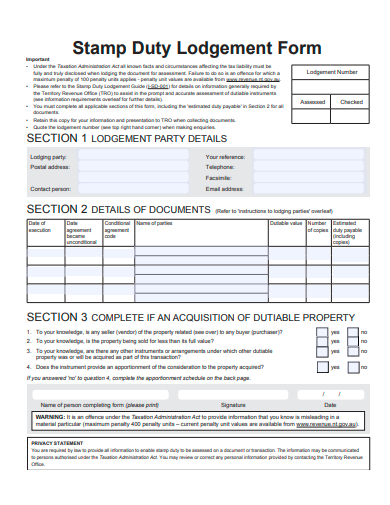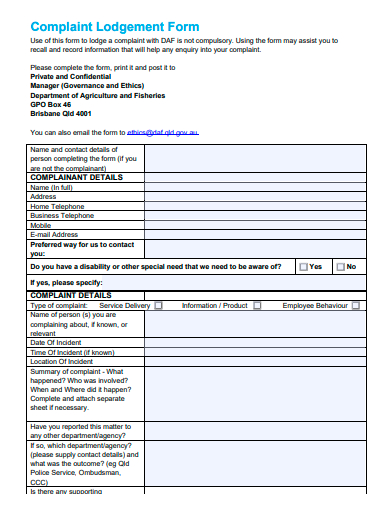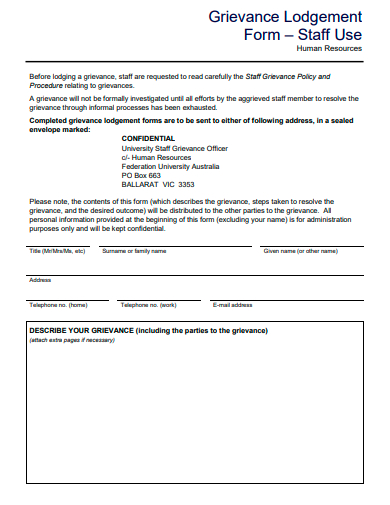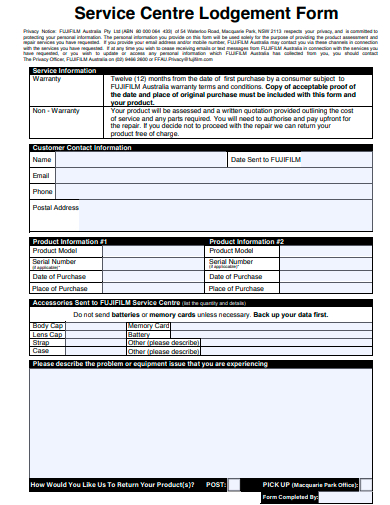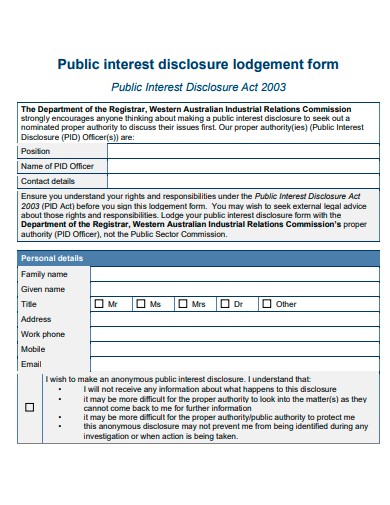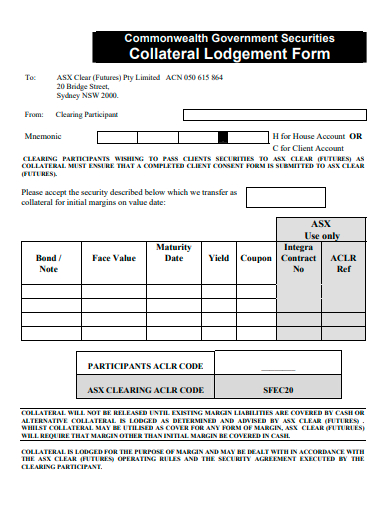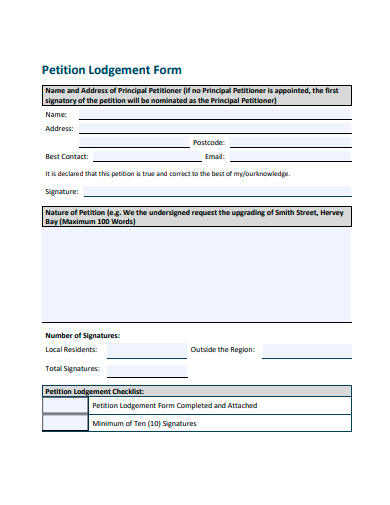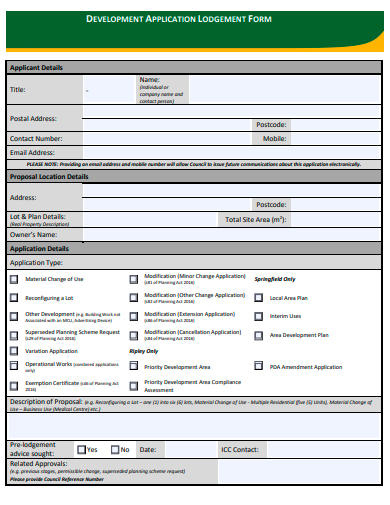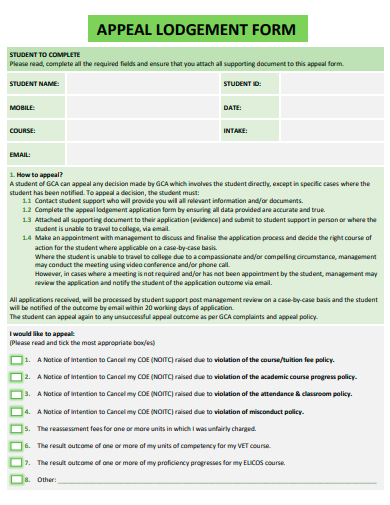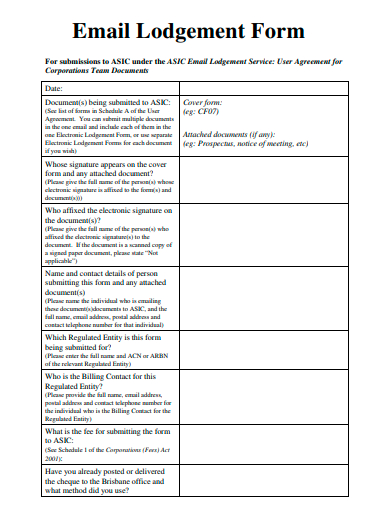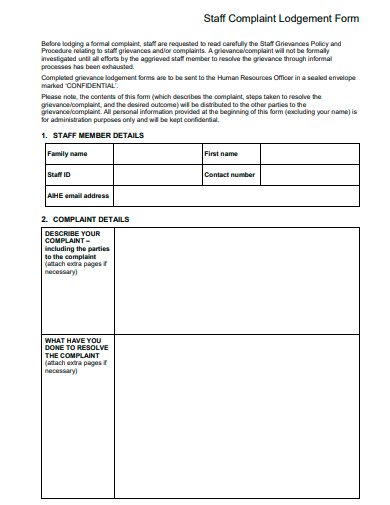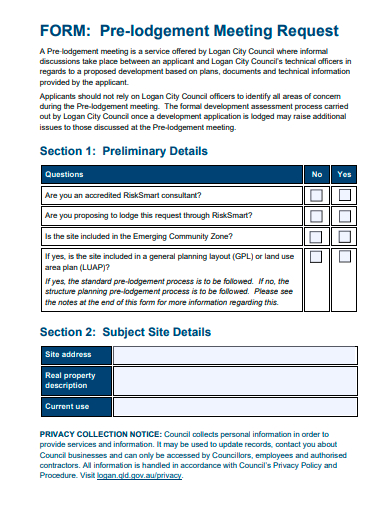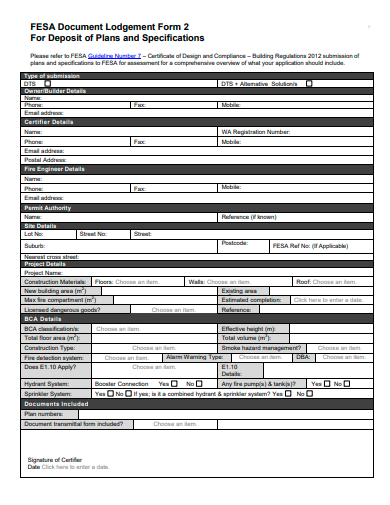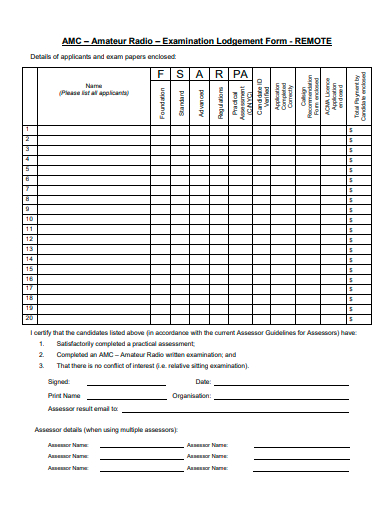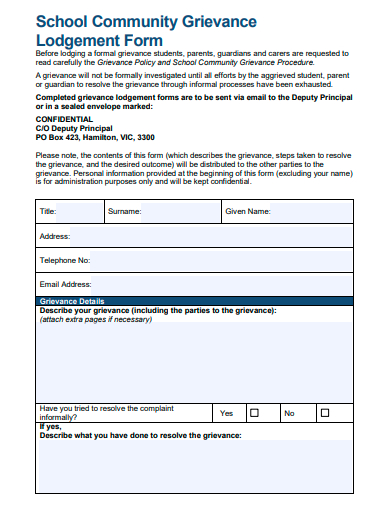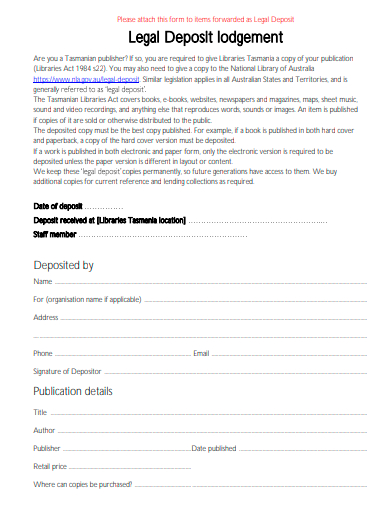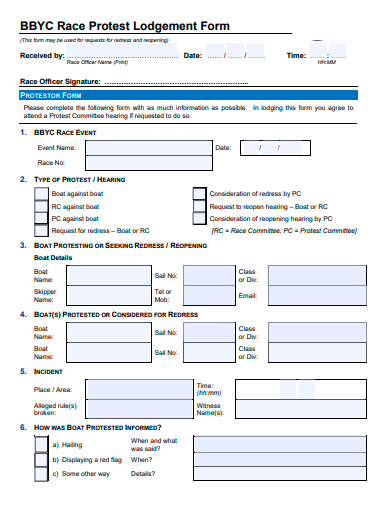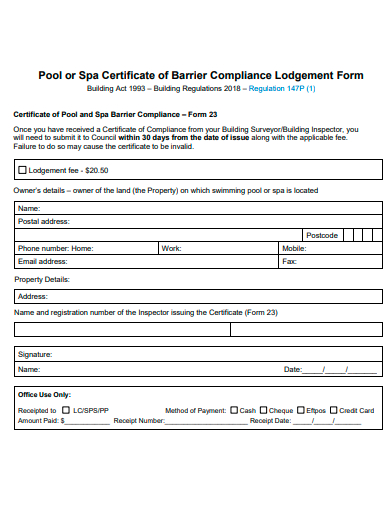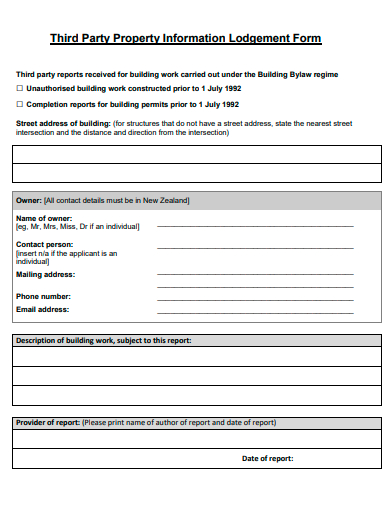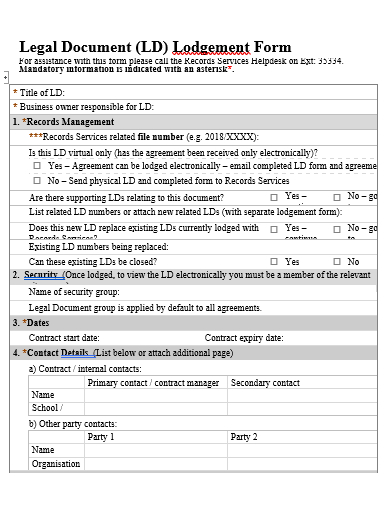Welcome to our all-inclusive Sample Lodgement Form Template! Simplify your sample submission process with our meticulously crafted template designed to enhance efficiency and accuracy. Whether you’re in research, quality control, or any field requiring sample analysis, our user-friendly form ensures a seamless experience. Save time, reduce errors, and expedite your workflow with this customizable solution. Say goodbye to paperwork hassles and embrace a smoother, more organized way to lodge your samples. Experience the future of sample management with our cutting-edge template.
20+ Lodgement Form Samples
1. Bond Lodgement Form Template
2. Sample Stamp Duty Lodgement Form Template
3. Complaint Lodgement Form Template
4. Sample Grievance Lodgement Form Template
5. Service Centre Lodgement Form Template
What is a Lodgement form?
A lodgement form, often referred to as a lodge form or submission form, is a document used in various fields and industries to facilitate the formal submission or deposit of information, items, or requests. These forms serve as a structured means of communication between individuals or organizations and the relevant authorities or entities responsible for processing the submitted materials. While the specific purpose and format of lodgement forms can vary widely depending on the context, they all share the common goal of streamlining and formalizing the submission process.
Here, we’ll explore the concept of a lodgement form in more detail, including its common uses and key features.
Legal and Financial Transactions:
In legal and financial contexts, lodgement forms are frequently used to initiate various processes. For example, when someone purchases property, they may complete a lodgement form to register the change of ownership with the appropriate government authority. In the banking sector, customers might use lodgement forms to deposit funds into their accounts or to request certain financial transactions, such as wire transfers or loan applications.
Government and Regulatory Compliance:
Government agencies often require individuals and businesses to complete lodgement forms when submitting important documents or complying with specific regulations. For instance, tax authorities may provide lodgement forms for taxpayers to submit their annual tax returns accurately. Immigration departments may utilize lodgement forms for visa applications or residency permits.
Academic and Research Fields:
In academia and scientific research, lodgement forms play a crucial role in submitting research proposals, thesis documents, or patent applications. Universities and research institutions typically have specific forms tailored to their requirements. Researchers use these forms to formally present their work for evaluation, approval, or publication.
Healthcare and Medical Records:
In the healthcare sector, lodgement forms are used for various purposes. Patients can fill out medical history forms when they visit a new healthcare provider to ensure accurate and comprehensive record-keeping. Healthcare professionals also use specialized forms to submit insurance claims, prescription orders, and laboratory test requests.
Business and Administrative Processes:
Within organizations, lodgement forms are employed for a wide range of administrative tasks. Employees may use travel expense lodgement forms to seek reimbursement for work-related travel expenses. Human resources departments may use forms for job applications, employee onboarding, and performance evaluations.
Key Features of Lodgement Forms:
Structured Information: Lodgement forms are designed with specific fields and sections to collect essential information systematically. This structure helps ensure that all necessary details are provided, reducing the likelihood of errors or omissions.
Legal and Binding: Depending on the context, lodgement forms may have legal significance. Submitting a form can initiate a legally binding process, such as a contract or regulatory compliance.
Efficiency: By standardizing the submission process, lodgement forms improve efficiency for both applicants and the entities processing the submissions. They also help maintain a clear record of transactions.
Documentation: Lodgement forms often serve as a record of the submitted information or requests. This documentation can be invaluable for auditing, record-keeping, and reference purposes.
A lodgement form is a versatile tool used in numerous sectors to formalize and streamline the submission of various materials or requests. Whether in legal, financial, academic, or administrative contexts, these forms play a vital role in ensuring accuracy, compliance, and efficient communication between individuals, organizations, and regulatory bodies.
6. Public Interest Disclosure Lodgement Form Template
7. Collateral Lodgement Form Template
8. Sample Petition Lodgement Form Template
9. Development Application Lodgement Form Template
10. Sample Appeal Lodgement Form Template
11. Email Lodgement Form Template
12. Staff Complaint Lodgement Form Template
13. Pre-Lodgement Meeting Request Form Template
14. Sample Document Lodgement Form Template
How to create a Lodgement form?
Creating a lodgement form involves several steps to design a structured and user-friendly document for collecting specific information or requests. Whether you are designing a paper-based form or an online digital form, here are the essential steps to create a lodgement form:
Define the Purpose and Scope:
Begin by clearly defining the purpose of the lodgement form and what information or materials you need to collect. Understand the scope of the form, including its target audience and the context in which it will be used. This clarity will guide the design process.
Determine the Format:
Decide whether your lodgement form will be physical (paper-based) or digital (online). Online forms are becoming increasingly popular due to their ease of use and ability to automate data collection and processing.
Create a Layout:
Design the layout of the form, ensuring it is visually appealing and user-friendly. Divide the form into sections or fields, and consider using headings, subheadings, and labels to organize the information. Leave enough space for individuals to write or type their responses.
Choose the Right Fields:
Identify the specific fields or sections that need to be included in the sample form. These can include text fields, checkboxes, radio buttons, drop-down menus, and file upload sections, among others. Each field should correspond to a piece of information you need to collect.
Add Instructions:
Provide clear and concise instructions at the top or next to each field. Instructions should explain what information is required, how to fill out the field correctly, and any additional guidance. Use simple language to ensure understanding.
Include Contact Information:
If applicable, include contact information for assistance or inquiries. This might include a phone number, email address, or physical address where individuals can reach out for help or clarification.
Consider Accessibility:
Ensure that your lodgement form is accessible to all users, including those with disabilities. Use readable fonts, provide alternative text for images (if digital), and ensure that the form can be navigated using a keyboard (for digital forms).
Test the Form:
Before finalizing the form, conduct thorough testing. If it’s a paper form, check for readability and ensure that it’s easy to fill out with standard writing tools. For digital forms, test them on various devices and browsers to ensure compatibility.
Review and Revise:
Review the form for errors, inconsistencies, or ambiguities. Make revisions as necessary to improve clarity and functionality. It’s a good practice to have others review the form as well to catch any overlooked issues.
Create a Submission Process:
Determine how individuals will submit the completed forms. For paper forms, provide instructions for mailing or hand delivery. For digital forms, set up an online submission process, which may include email submissions, form submissions through a website, or integration with a database.
Implement Security Measures:
If the lodgement form collects sensitive or confidential information, implement security measures to protect data privacy. This may involve encryption, secure servers, or other data protection protocols.
Promote and Distribute:
If applicable, promote the availability of your lodgement form to your target audience. This may involve sharing it through your organization’s website, social media, email newsletters, or physical distribution.
Creating an effective lodgement form requires careful planning, design, and testing to ensure it serves its intended purpose efficiently. By following these steps and considering the specific needs of your audience, you can create a lodgement form that streamlines the submission process and collects accurate and relevant information.
15. Examination Lodgement Form Template
16. School Community Grievance Lodgement Form Template
17. Sample Legal Deposit Lodgement Form Template
18. Race Protest Lodgement Form Template
19. Spa Certificate of Barrier Compliance Lodgement Form Template
20. Third Party Property Lodgement Form Template
21. Lodgement Form in DOC
Why I need to use Lodgement Form
Using a lodgement form is essential for various reasons in both personal and professional contexts. These forms serve as structured tools to facilitate the organized collection of specific information, documents, or requests. Here are several compelling reasons why you need to use lodgement forms:
Standardization:
Lodgement forms provide a standardized format for collecting information or submissions. By using a consistent template, you ensure that all necessary details are captured uniformly. This standardization reduces the likelihood of errors, omissions, and misunderstandings.
Clarity and Guidance:
Lodgement forms often come with clear instructions for completing each section. These instructions help individuals understand what is required and how to provide the necessary information accurately. This clarity minimizes confusion and ensures that submissions are complete and compliant with requirements.
Efficiency:
One of the primary benefits of using lodgement forms is increased efficiency. They streamline the submission process by eliminating the need for lengthy emails, phone calls, or face-to-face interactions to collect information or requests. This efficiency is particularly valuable in administrative, legal, and regulatory contexts.
Record-Keeping:
Lodgement forms create a documented record of the information or submissions received. This record-keeping is essential for maintaining a clear history of transactions, requests, or applications. It serves as a valuable reference for both parties involved.
Legal and Compliance Requirements:
In many cases, lodgement forms are necessary to meet legal or regulatory requirements. Government agencies, financial institutions, and other organizations often mandate the use of specific forms to ensure compliance with relevant laws and regulations. Failing to use the required form can lead to legal complications.
Data Accuracy:
Using a lodgement form helps ensure the accuracy and completeness of the data collected. Required fields and clear instructions prompt individuals to provide the necessary information, reducing the risk of inaccuracies or missing details.
Streamlined Communication:
Lodgement forms serve as a bridge of communication between the submitter and the entity processing the information. This structured approach reduces the need for back-and-forth communication to clarify details or request missing information.
Organized Workflow:
For organizations and businesses, lodgement forms contribute to an organized workflow. They help departments or teams manage incoming submissions more efficiently, prioritize task list, and allocate resources effectively.
Time Savings:
Lodgement forms save time for both the submitter and the recipient. Submitters can complete the form at their convenience without the need for real-time interactions, and those processing the submissions can quickly review and act on the information provided.
Enhanced Customer Service:
In customer-facing industries, using lodgement forms can enhance the overall customer experience. It demonstrates professionalism, reduces wait times, and allows staff to focus on addressing specific needs rather than gathering basic information.
Accessibility:
Digital lodgement forms, when designed with accessibility in mind, ensure that individuals with disabilities can also participate in the submission process. This inclusivity is important for equal access and compliance with accessibility regulations.
In summary, the use of lodgement forms is essential to promote efficiency, accuracy, compliance, and transparency in various personal and professional interactions. Whether for legal documents, financial transactions, academic submissions, or administrative tasks, these forms play a critical role in streamlining processes and improving communication between parties. By utilizing lodgement forms appropriately, individuals and organizations can benefit from smoother workflows and reduced administrative burden.
Related Posts
Sample Sworn Affidavit Forms
Vehicle Inspection Forms Samples & Templates
Sample Employee Advance Forms
Sample Child Travel Consent Forms
Sample Testimonial Request Forms
Sample Employee Details Forms
Sample Divorce Forms
Sample Attestation Forms
Employee Performance Appraisal Form Templates
FREE 9+ Sample Presentation Evaluation Forms in MS Word
FREE 10+ School Admission Form Samples & Templates in MS Word | PDF
FREE 30+ Patient Consent Form Samples in PDF | MS Word
FREE 10+ Sample Sign Off Form Templates in PDF | MS Word
FREE 11+ Sample Medical Consultation Forms in PDF | MS Word
FREE 8+ Sample Donation Forms in PDF | MS Word
